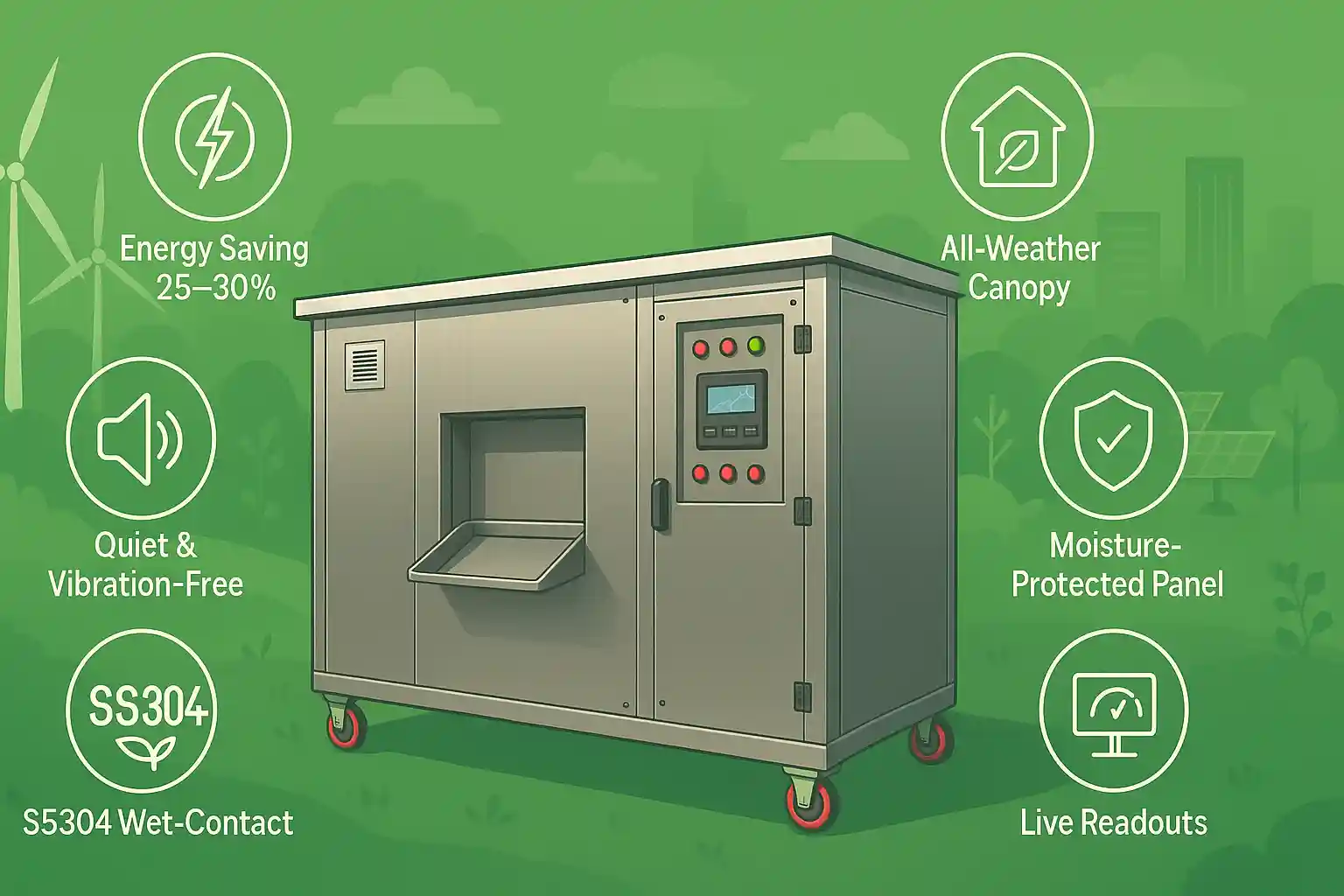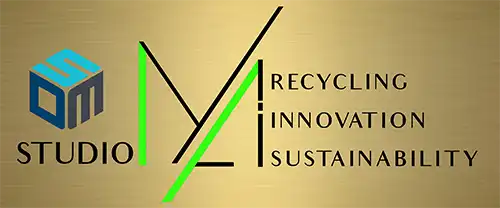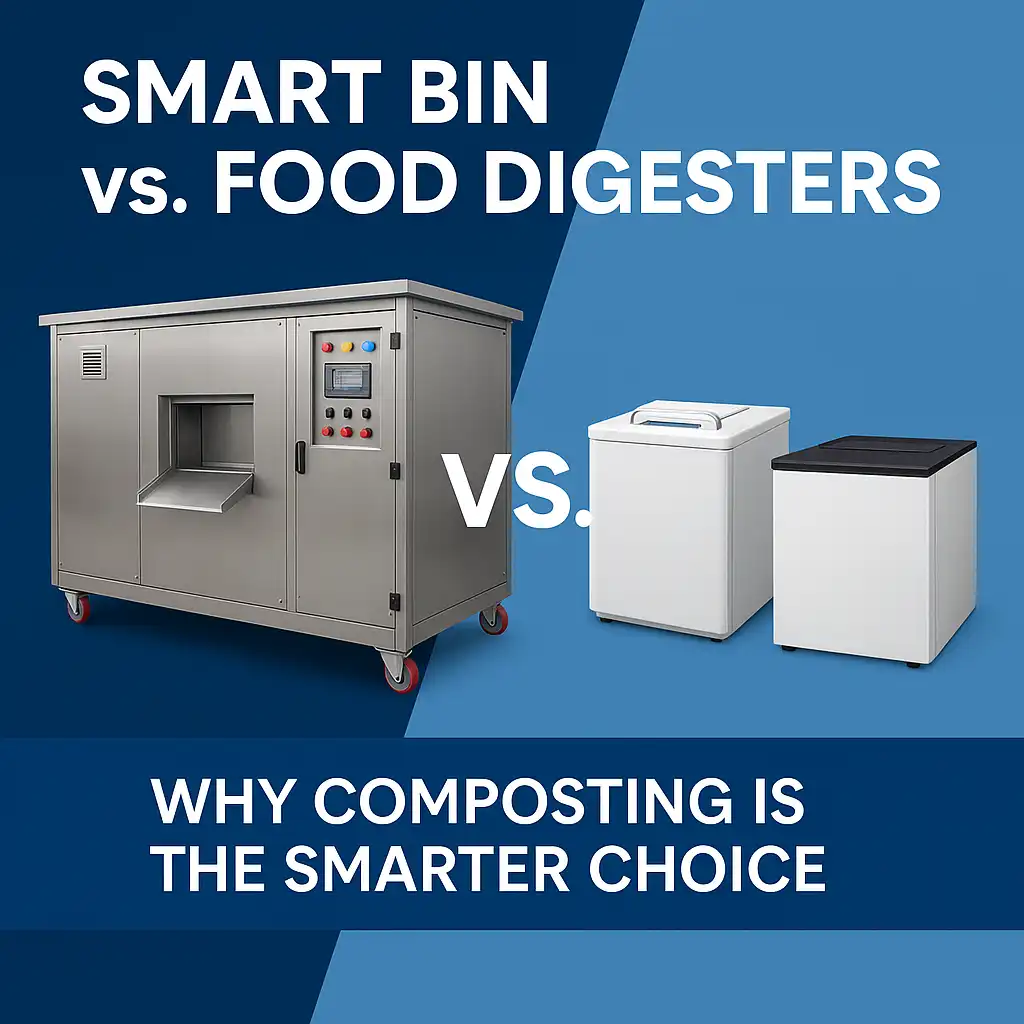Introduction
Food waste is one of the biggest challenges faced by the hospitality, catering, education, and industrial sectors in the Middle East. With rising environmental regulations and ambitious UAE Vision 2030 sustainability goals, businesses are under pressure to reduce landfill waste and adopt eco-friendly solutions.
Two common technologies are often considered: food digesters and food composters. While both claim to manage organic waste, there are key differences that directly impact sustainability, compliance, and long-term costs.
At DMS Ventures, we developed the Smart Bin food composter to provide a truly sustainable alternative to digesters. Here’s why Smart Bin is the smarter choice.

1. Environmental Impact
- Food Digesters: Break down food waste using water and enzymes, discharging liquid effluent into the drainage system. While it reduces visible waste, it still creates pollution downstream and adds pressure on sewage infrastructure.
- Smart Bin Food Composters: Process food waste into nutrient-rich compost with zero liquid discharge. This eliminates effluent pollution and diverts waste away from landfills, directly cutting methane emissions.
Smart Bin aligns with global ESG standards and supports businesses in achieving true zero-waste targets.
2. Compliance & Regulations
- Many Middle Eastern governments, including the UAE and Saudi Arabia, are tightening regulations on waste management and water discharge.
- Food digesters often fail compliance because of their liquid discharge.
- Smart Bin composters, on the other hand, produce solid compost that can be used for landscaping or safely disposed of.
✅ Result: No risk of penalties, easier government approvals, and stronger alignment with sustainability certifications like LEED, Estidama, and Green Globe.
3. Cost Savings & ROI
- Digesters: Require constant water and enzyme supplies, adding ongoing operational costs.
- Smart Bin: Runs with minimal consumables, using energy-efficient technology to deliver compost.
- Compost produced can also be reused in gardens, golf courses, and landscaping projects, reducing the need for purchased fertilizers.
💰 ROI Advantage: Smart Bin delivers long-term savings on waste disposal and landscaping inputs.
4. Reputation & Brand Value
- Luxury hotels, universities, and companies are increasingly judged by their sustainability practices.
- Adopting Smart Bin positions a brand as a leader in eco-conscious operations, appealing to environmentally aware customers, students, and investors.
Examples:
- JW Marriott and The Taj have showcased their Smart Bin installations as part of their sustainability commitments.
- Masdar City in Abu Dhabi integrated Smart Bin into its self-sustainable urban model.
5. Custom-Built for Demanding Sectors
Unlike standard digesters, Smart Bin is engineered with custom solutions for:
- ONGC, Offshore & Marine: Closed-loop composting for rigs and vessels where liquid discharge is not allowed.
- Airports & Malls: High-capacity Smart Bin models for 24/7 operations.
- Universities & Schools: Educational and practical sustainability tools.
⚙️ Flexibility: With 500kg, 750kg, and 1-ton/day models, plus bespoke builds, Smart Bin adapts to any scale.
Conclusion
When it comes to food waste management, the choice is clear: Smart Bin composters deliver true sustainability, regulatory compliance, and long-term financial benefits that food digesters simply cannot match.
By choosing Smart Bin, you’re not just solving a waste problem—you’re building a zero-waste future for your business and community.
GET IN TOUCH
👉 Ready to upgrade your waste management system?
Learn how Smart Bin can transform your operations.

